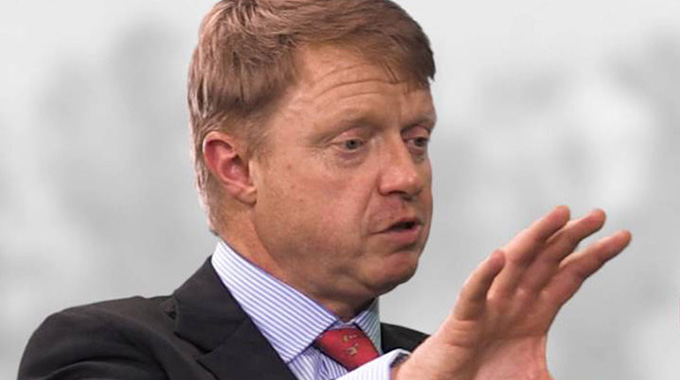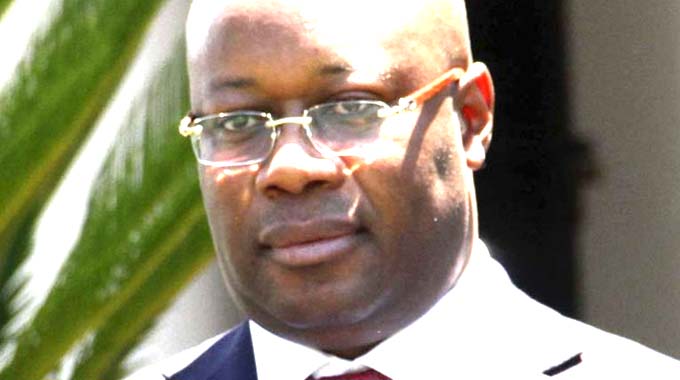Editorial Comment: Investors impressed by promise keeping

As Zimbabwe accelerates its investment drive the old saw about word-of-mouth advertising being the best advertising is particularly relevant as was seen at an investment conference in Cape Town last week when very senior executives of two global mining companies were happy to speak up in media interviews.
Zimbabwe does not always get the best international press, especially in some of the countries where private investors are based, and in any case, since most countries are now competing for investment dollars we need that little bit extra to get ahead.
The new focus of our Foreign Ministry to deal with trade and investment issues is obviously the major first step, that a potential investor can get accurate and complete information from someone in an embassy who knows what they are talking about.
But there is always that question mark over public relations and sales efforts, such as what are you not being told.
When someone with some standing in a global industry voluntarily stands up and lays it on the line, people listen. And they listen hard when that executive says: Yes we are treated properly, and fairly; Yes the Government goes out of its way to address our concerns; Yes we have a good, peaceful and stable work environment; And most importantly when they say Yes we make money.
Chief financial officer Mr Mark Learmonth of Caledonia Mining Corporation, which is listed on the New York Stock Exchange, was exceptionally positive.
His company already owns Blanket Mine in the Gwanda area and is now investing in making new investments in the Midlands as it seeks to increase its gold output about nine-fold to 15,5 tonnes a year over the present decade.
He explained why Caledonia thought Zimbabwe was a good bet for investment. His mines are safe, his workers are safe, he can move his equipment and raw materials around without worries.
One interesting point was that his entire Zimbabwean workforce of 1 640 is entirely local.
That tells everyone that Zimbabwe has a large pool of technically-skilled people. This is important if you are investor since it can cost a fortune to ship in skilled expatriates with all their required allowances.
When everyone, from semi-skilled workers right the way up to the top level of engineers and geologists is “on tap” life becomes a lot easier.
Mr Learmonth was not that fussed about selling Caledonia gold to the State-owned Fidelity Printers and Refiners, not about getting payment in a mix of Zimbabwe and US dollars. He reckoned he saved money selling to Fidelity, as he gets full world price promptly, but does not have the hassle and costs of doing his own final refining.
And the currency mix is not a problem since the local component pays his local bills, and the US dollar component buys his required imports, allows him to repatriate his profits and apparently leaves a bit left over.
He seemed satisfied and was confident that Caledonia’s large planned jumps in investment were quite safe and would benefit his shareholders.
The other major investor at the conference, managing director Mr Sam Hosack of Prospect Resources, an Australian-listed company now spending money on developing lithium mines brought up other aspects. Important ones as lithium is a new mineral in modern Zimbabwe, the old Bikita mine being long closed, and Prospect had special requirements as a result.
He reckoned that the Government’s promises of making business easier and helping investors were being fulfilled. But he was especially impressed by President Mnangagwa’s stress on bringing technocrats into the top of the economic ministries.
Mines and Mining Development Minister Winston Chitando qualifies as a technocrat. He spent 33 years in the mining industry, rising from graduate trainee to executive chairman of a large mining corporation and served his two-year stint as president of the Chamber of Mines of Zimbabwe, showing the confidence other major miners had in him.
This Mr Hosack felt was very important when Prospect dealt with the Ministry and the Minister, since they were dealing with people who knew exactly what Prospect was talking about, and had a good grasp of what Prospect needed, again that ease of doing business which is the hallmark of the Second Republic.
There are several other points to note from that good press Zimbabwe received. The first is obvious, that we have to deliver on our promises. The two mining executives were describing their own experiences, not regurgitating public relations handouts.
And if there was more in our talk than in our actions they would have said so, possibly diplomatically but still very clearly.
This is critical. President Mnangagwa has always been parsimonious with the rhetoric, preferring to make his typically brief speeches when he commissions something, opens something, rather than in making promises.
This results-based culture might now seem normal, but if you go back a few years into newspaper files you will notice the revolution at the top, with modern headlines tending to stress what has been done, not what might be done.
The President places each set of results into context, how they fit into his national vision and what rung they are on the ladder, but he speaks from the background of what has been done. This is obviously for the benefit of Zimbabweans, but it does impress outsiders as well.
The second point is the insistence on competency at the top and finding the right person for the job. While some Cabinet posts demand a detailed political background, there are others, especially in the economic and some technical ministries, where the political head needs to be able to interface with the professional staff and outside experts as an equal.
So we have that block of ministers who showed little signs of political activity in their youth and came into Government and politics fairly late in life after making their mark in the outside world, including the private sector.
The President can obviously handle the politics, but in any case the growing importance of the Parliamentary portfolio committees, where the most important work is done by the representatives of the people, means that there is considerable input, suggestions and questions from the grass roots, which is what politics is supposed to be about, rather than point scoring.
Competency with accountability in short.








Comments